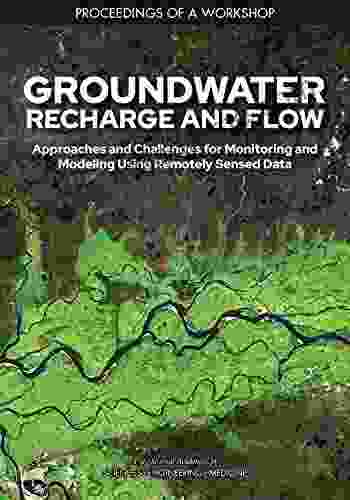John Dewey And Confucian Thought: Bridging East and West in Education

4 out of 5
| Language | : | English |
| File size | : | 24064 KB |
| Text-to-Speech | : | Enabled |
| Screen Reader | : | Supported |
| Enhanced typesetting | : | Enabled |
| Word Wise | : | Enabled |
| Print length | : | 430 pages |
In the tapestry of educational thought, the ideas of John Dewey and Confucius stand out as threads that intertwine and resonate across time and cultures. While Dewey, an American philosopher and educational reformer, lived centuries after Confucius, the ancient Chinese sage, their philosophies share a deep concern for the human experience and the transformative power of education.
Influence of Confucian Thought on Dewey's Philosophy
Dewey's early exposure to Confucianism through the works of Chinese philosophers like Hu Shi shaped his worldview and educational outlook. He was particularly drawn to Confucianism's emphasis on:
- The importance of social relationships: Confucius believed that individuals are deeply connected to their community and that education should foster social responsibility and harmony.
- The role of experience in learning: Confucianism emphasizes the value of direct experience in acquiring knowledge and developing wisdom.
- The pursuit of a meaningful life: Confucius taught that education should not solely focus on intellectual development but also cultivate ethical values and personal fulfillment.
Shared Concepts in Dewey's and Confucian Education
These Confucian principles found resonance in Dewey's own educational philosophy:
- Progressive Education: Both Dewey and Confucius believed in education that is child-centered and responsive to the needs of the learner.
- Experiential Learning: They emphasized the importance of hands-on experiences and active engagement in the learning process.
- Social Responsibility: Education, they believed, should equip individuals to contribute meaningfully to society.
The Role of Ethics in Education
For both Dewey and Confucius, ethics played a central role in education. They believed that schools should not only impart knowledge but also cultivate moral values and ethical decision-making.
Dewey's pragmatic approach to ethics stressed the importance of testing ideas in practice and considering the consequences of one's actions. Confucius, on the other hand, emphasized the concept of ren, or benevolence, as the foundation of ethical conduct.
Pursuit of a Meaningful Life
Beyond intellectual development, Dewey and Confucius believed that education should foster a sense of purpose and personal fulfillment. They recognized that true education involves:
- Self-cultivation: Education should help individuals develop their potential and cultivate their inner qualities.
- Connection to the world: Education should connect individuals to their community and the wider world.
- Purposeful living: Education should equip individuals with the knowledge and skills to lead meaningful and impactful lives.
Implications for Education Today
The insights of Dewey and Confucius continue to inspire educators today. Their shared ideas offer valuable guidance for:
- Creating inclusive and equitable learning environments: Education should be designed to meet the diverse needs of all learners.
- Developing critical thinking and problem-solving skills: Students should be encouraged to question, analyze, and creatively address challenges.
- Fostering a sense of community: Schools should promote cooperation, empathy, and a shared sense of responsibility.
- Cultivating ethical values: Education should help students develop strong moral principles and make responsible decisions.
- Preparing students for lifelong learning: Education should equip students with the skills and adaptability to navigate a rapidly changing world.
John Dewey and Confucius, though separated by time and distance, shared a profound understanding of the transformative power of education. Their philosophies, rooted in human experience and ethical values, continue to resonate deeply in educational thought today. By bridging East and West, their ideas offer invaluable insights for creating educational environments that foster the intellectual, ethical, and personal growth of all learners.
4 out of 5
| Language | : | English |
| File size | : | 24064 KB |
| Text-to-Speech | : | Enabled |
| Screen Reader | : | Supported |
| Enhanced typesetting | : | Enabled |
| Word Wise | : | Enabled |
| Print length | : | 430 pages |
Do you want to contribute by writing guest posts on this blog?
Please contact us and send us a resume of previous articles that you have written.
 Book
Book Novel
Novel Page
Page Chapter
Chapter Text
Text Story
Story Genre
Genre Reader
Reader Library
Library Paperback
Paperback E-book
E-book Magazine
Magazine Newspaper
Newspaper Paragraph
Paragraph Sentence
Sentence Bookmark
Bookmark Shelf
Shelf Glossary
Glossary Bibliography
Bibliography Foreword
Foreword Preface
Preface Synopsis
Synopsis Annotation
Annotation Footnote
Footnote Manuscript
Manuscript Scroll
Scroll Codex
Codex Tome
Tome Bestseller
Bestseller Classics
Classics Library card
Library card Narrative
Narrative Biography
Biography Autobiography
Autobiography Memoir
Memoir Reference
Reference Encyclopedia
Encyclopedia Laura Stewart
Laura Stewart Lance Casey
Lance Casey L Michael Morales
L Michael Morales Sam Hamill
Sam Hamill Lala Kent
Lala Kent Paul E Mcmahon
Paul E Mcmahon Yei Theodora Ozaki
Yei Theodora Ozaki Xiaoyan Lei
Xiaoyan Lei Krishnan K Sankaran
Krishnan K Sankaran Ricardo Simpson
Ricardo Simpson Kristina Geiman
Kristina Geiman Lance Humble
Lance Humble Lola Schnapp
Lola Schnapp Richard James Clapham
Richard James Clapham Larry Crabb
Larry Crabb Susan Burke
Susan Burke Madrean Schober
Madrean Schober Yori Zwols
Yori Zwols Kostas Kampourakis
Kostas Kampourakis Sarah Toplikar
Sarah Toplikar
Light bulbAdvertise smarter! Our strategic ad space ensures maximum exposure. Reserve your spot today!

 Galen PowellTreat Yourself With Gingerbread: The Ultimate Guide to Making and Enjoying...
Galen PowellTreat Yourself With Gingerbread: The Ultimate Guide to Making and Enjoying...
 Franklin BellThe Collected Writings of Sui Sin Far: A Literary Odyssey of Identity and...
Franklin BellThe Collected Writings of Sui Sin Far: A Literary Odyssey of Identity and...
 Roberto BolañoApproaches and Challenges for Monitoring and Modeling Using Remotely Sensed...
Roberto BolañoApproaches and Challenges for Monitoring and Modeling Using Remotely Sensed... Eric NelsonFollow ·8.1k
Eric NelsonFollow ·8.1k Calvin FisherFollow ·7.2k
Calvin FisherFollow ·7.2k Thomas HardyFollow ·17.2k
Thomas HardyFollow ·17.2k Thomas PowellFollow ·3.6k
Thomas PowellFollow ·3.6k John ParkerFollow ·4.9k
John ParkerFollow ·4.9k Adam HayesFollow ·12.6k
Adam HayesFollow ·12.6k Stephen KingFollow ·7.7k
Stephen KingFollow ·7.7k Jorge Luis BorgesFollow ·18.7k
Jorge Luis BorgesFollow ·18.7k

 Charlie Scott
Charlie ScottQuickBooks 2024 In Depth: Your Essential Guide to...
About the Book Are you ready to elevate...

 D'Angelo Carter
D'Angelo CarterUnlocking the Mysteries of Primitive Economies: A Journey...
Prepare to embark on an...

 Milton Bell
Milton BellUnveiling the Secrets of Agile Coaching: A Comprehensive...
In the ever-evolving landscape...

 Tyler Nelson
Tyler NelsonUnveiling the Treasures of Italy: A Journey of Discovery...
Embark on an enchanting expedition into the...
4 out of 5
| Language | : | English |
| File size | : | 24064 KB |
| Text-to-Speech | : | Enabled |
| Screen Reader | : | Supported |
| Enhanced typesetting | : | Enabled |
| Word Wise | : | Enabled |
| Print length | : | 430 pages |










